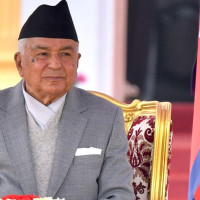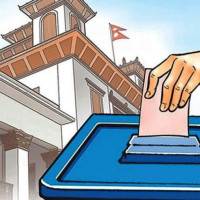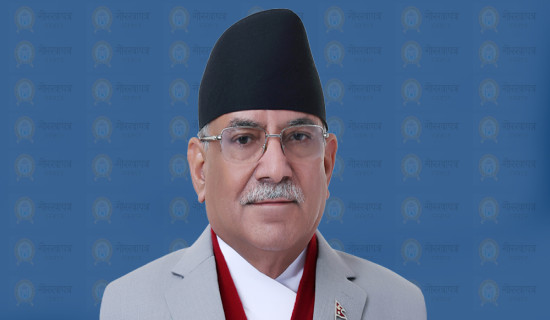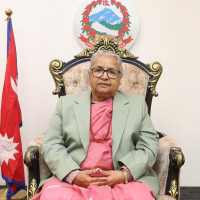- Tuesday, 3 March 2026
BRICS In Centre Stage Of Global Economy
The formal admission of Indonesia on Monday as a full-fledged member of BRICS has given a significant boost to this block' aspiration to emerge as an alternative to the western-dominated world economic order. With the entry of Indonesia, BRICS now represents 35 per cent of global GDP and 45 per cent of the global population. The inclusion of Indonesia, the fourth most populous country of the world, therefore, can be interpreted as a decisive tilt in the shift of the economic world order in favour of the global south.
Since its founding in 2010 at the initiative of Brazil, India, China, Russia and South Africa, BRICS has advanced as an economic coalition offering a distinctly different vision for global economic growth in contrast to the western dominated economic world order. This unique combination of countries with diverse economic resources has helped this block to emerge as a formidable rival to Western economic institutions, with the potential to challenge the global west even in areas of global geopolitics.
Close cooperation
For quite some times, all the BRICS countries are fostering close cooperation by leveraging their strength and building financial institutions to reduce their dependence on Western financial institutions. Traditionally, the global economic activities, trade and commerce have been controlled by institutions like the World Bank, the Asian Development Bank, International Monetary Fund and other West-led financial frameworks. However, the BRICS has, over the years, opened its own institutions, such as the New Development Bank (NDB), Contingent Reserve Arrangement (CRA) and Asian Infrastructure Investment Bank (AIIB) with a view to reduce reliance on dollars and Western financial systems, while also fostering condition for the financial stability among the member countries.
With its inception, BRICS has advocated inclusion of developing nations in the global economic forums where decision are made on economic and governance policies. It has always offered its platforms to the developing countries to amplify the voices of the underprivileged people. It has challenged the Western dominance in formulating global economic policies against the interest of the developing countries. BRICS countries have always stressed on multilateralism and comprehensive reforms of financial institutions such as WTO, IMF and other relevant UN agencies to ensure equitable access to all financial resources.
BRICS has also actively advocated de-dollarization aiming to reduce dependence on US dollar in international trade and economic transactions. Its objective is to shift from dollar-driven unipolar global economic framework to a more multipolar global financial system. This effort seeks to prevent over reliance on dollar which has been frequently used by Western powers as a tool for imposing sanctions against any countries that challenge their domination.
The BRICS countries have called for increased use of local currencies in bilateral trade among the member states. Several countries in the group have already undertaken agreement to settle payments in their own local currencies. For example Russia and China, and Russia and India have been undertaking trade transaction making payment in their own respective currencies. The increasing tendencies among the BRICS countries to prioritise local currencies in trade transaction poses considerable challenge to the monopoly of dollar monopoly in the global market.
The emergence of BRICS is an attempt by a coalition of less developed countries of Asia, Africa, Latin America and Oceania collectively known as the Global South to establish a more equitable and just economic framework for national development and international trade. This organisation represents nations which advocate fairer global trade, more independent financial system and equitable access to resources.
BRICS process is also sometimes explained as a departure from the vestiges of Breton Woods system of economic framework established in 1944 at the United Nations Monetary and Financial Conference. This framework envisioned rebuilding the post-World War II global economy, with participating countries pegging to the US dollar. Over time, the US dollar evolved as a universal currency and has been widely used both as a tool for promoting financial transactions among nations and impose sanctions against those who dare to challenge the established order.
The BRICS coalition has demonstrated significant ability in shaping economic governance and democratisation of global politics. It is fast emerging as a global platform capable of challenging traditional global economic and governance institutions and providing alternative model for collaboration in the field of sustainable development, addressing g issues of poverty, equitable trade transactions and climate induced humanitarian crisis.
As of January 2025, ten countries Brazil, Russia, India, China, South Africa, Egypt, Ethiopia, Iran, United Arab Emirates and most recently Indonesia have joined BRICS. This reflects the collective determination of these countries to present a united front to amplify the voice of the developing world and protect their interest in the fierce economic rivalry against the Global North represented by the industrial countries of North America, Europe and Japan.
The rise of BRICS has sparked concern among the Western economic powers, particularly regarding the de-dollarisation, which has met with stiff resistance from the western economic powers. President elect-of the United States Donald Trump has already warned Latin American Countries considering joining this block with an exorbitant tariff on their export commodities.
Equitable world order
Nevertheless, the rapidly growing economic powers of the Global South remain steadfast in their pursuit of more collaborative and equitable economic world order despite the pressure from the western economic monopoly. The BRICS framework has provided them a solid foundation for fostering trade in local currencies, reducing dependence on US dollars and creating an opportunity for transitioning to multipolar global governance structure.
Despite challenges from western economic powers, the BRICS has demonstrated its intention to stay on course of a transformative shift towards more balanced and inclusive economic world order. Representing nearly half of the global population and 35 per cent global GDP, it has already shown the prospect of emerging as a catalytic force for building more collaborative, independent and equitable multipolar economic regime, where all countries, big or small will find themselves in a position to enjoy their share of global wealth.
(Dr. Bharadwaj in former ambassador and former chairperson of Gorkhapatra Corporation. bharadwajnarad@gmail.com)

















